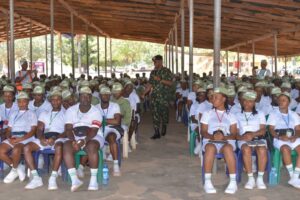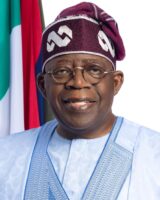President Bola Tinubu has instructed that the ongoing industrial action by the National Association of Resident Doctors (NARD) be ended “as soon as practicable.”
The Minister of State for Health and Social Welfare, Dr. Adekunle Salako, announced this on Monday during a briefing in Abuja, saying the President directed the Ministry to take “every legitimate step to restore health services nationwide.”
Salako explained that most of the union’s 19-point demands are being addressed through dialogue, recruitment, and financial interventions. However, NARD dismissed the government’s claims as misleading and far from reality.
While acknowledging the hardship caused by the strike, the Minister assured that negotiations were ongoing.
He highlighted that a Collective Bargaining Agreement mechanism, chaired by the Minister of Labour, has been in place since August to align the interests of all health professionals.
“Healthcare delivery is teamwork, and we must find collective solutions rather than isolated agreements that create further divisions,” Salako said.
So far, 12 meetings have been held, with an external industrial relations consultant mediating contentious issues including pay relativity, remuneration parity, and the creation of a consultant cadre for non-medical doctors.
To address manpower shortages, Salako disclosed that 14,444 health workers were recruited across 64 federal tertiary institutions in 2024, with approval granted to employ another 23,059 in 2025, including 2,629 resident doctors and 868 consultants.
He added that President Tinubu has approved an increase in the retirement age for clinical staff to 65 years and established a committee, including NARD representatives, to develop a universal protocol for hiring locum doctors, with a report expected soon.
On welfare, Salako confirmed that the government has begun releasing funds to settle arrears:
“A total of ₦21.3 billion has been released, with about 60 percent of affected workers already paid. Another ₦11.9 billion is being processed, while ₦10 billion was earlier disbursed under the Medical Residency Training Fund to support postgraduate examinations.”
He also addressed the issue of health worker migration, stating:
“Nigeria is working toward transforming its health professionals into assets that contribute to both national service and foreign exchange earnings.”
Read Also
The Minister outlined a new recruitment framework allowing annual employment of permanent staff, while empowering hospital executives to hire temporary workers between cycles.
A ministerial task force has been deployed to monitor hospital operations and ensure efficiency among health workers not participating in the strike.
Alausa confirmed that ₦41 billion in arrears was owed under the 25%/35% CONMESS review, noting that ₦31 billion has already been paid or processed, representing about 83 percent of the total debt, which would soon be completed.
Addressing circulating rumours, the Medical and Dental Council of Nigeria (MDCN) clarified there has been no downgrade of doctors’ professional qualifications.
The Council explained that it only conducted a categorisation exercise for additional qualifications such as fellowships and memberships, classifying them from categories A to D based on the awarding institution, specialty, and type.
Doctors whose certificates were misclassified were advised to resubmit for correction.
Despite the strike, Salako assured that consultants across federal tertiary health institutions are sustaining critical services.
READ ALSO: Strike: FG to implement no work no pay on NARD
Outpatient and emergency departments remain operational at reduced capacity, while surgeries and urgent treatments continue nationwide.
In a statement on Monday, NARD’s leadership, including President Dr. Mohammad Suleiman, Secretary-General Dr. Shuaibu Ibrahim, and Publicity Secretary Dr. Abdulmajeed Yahya, said that none of its 19-point demands had been fully addressed.
They claimed only a small fraction of the funds disbursed by the government reached resident doctors.
“Our demands represent the minimum requirements for a functional healthcare system and the restoration of dignity to medical practice in Nigeria,” NARD said.
“Nigerian doctors are collapsing from exhaustion in hazardous environments without recognition or compensation. The ongoing migration of doctors is driven by hardship, not greed.”
“Industrial peace cannot be achieved through press statements but through justice, sincerity, and respect for agreements.”
The association urged Nigerians to view the strike not as an act against the public, but as a fight for the survival of healthcare workers and patients alike.





